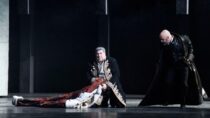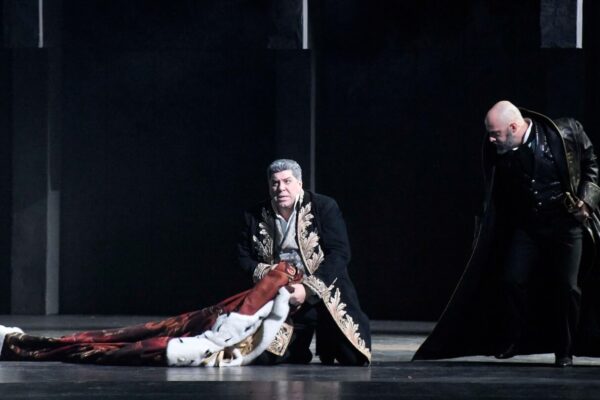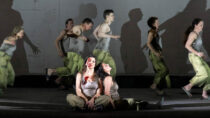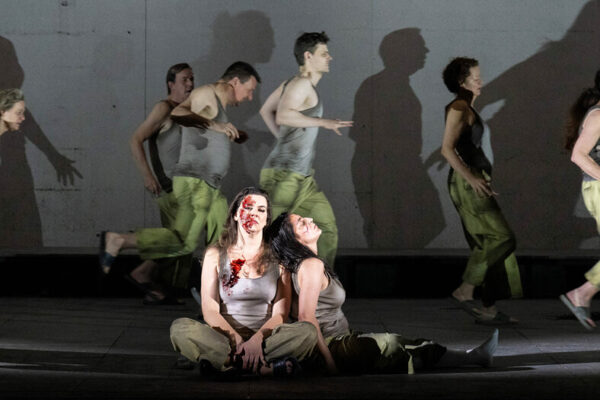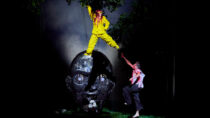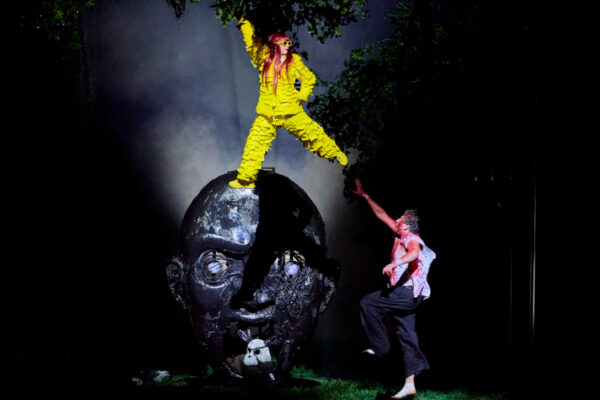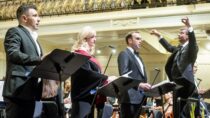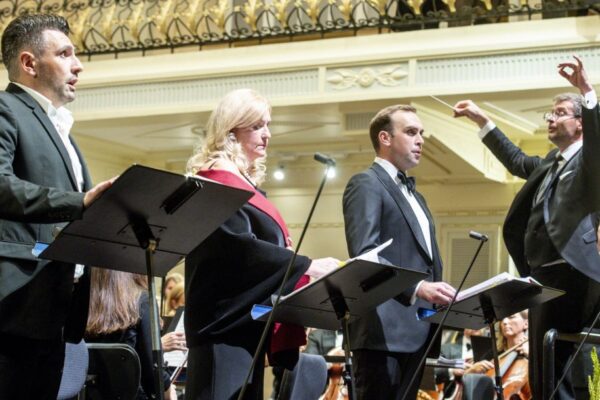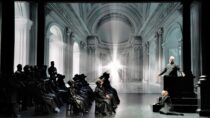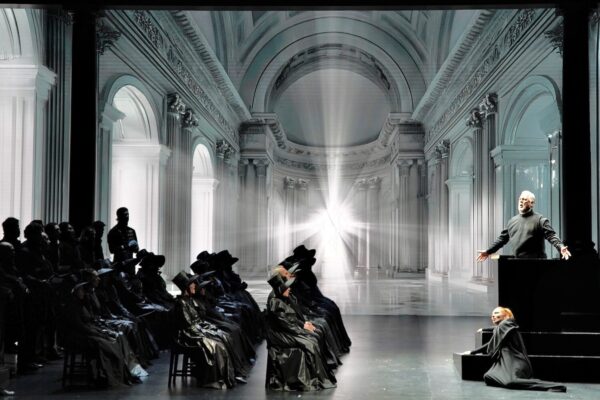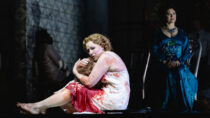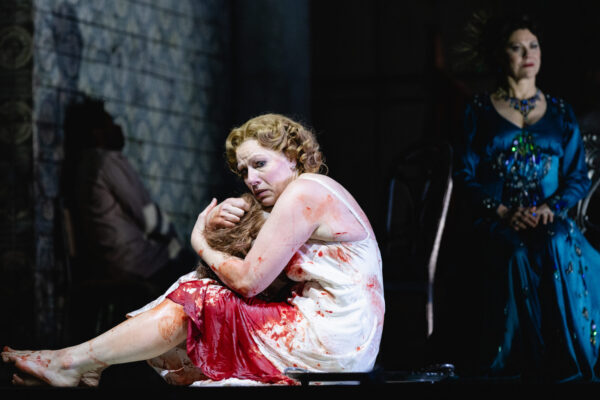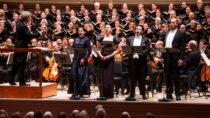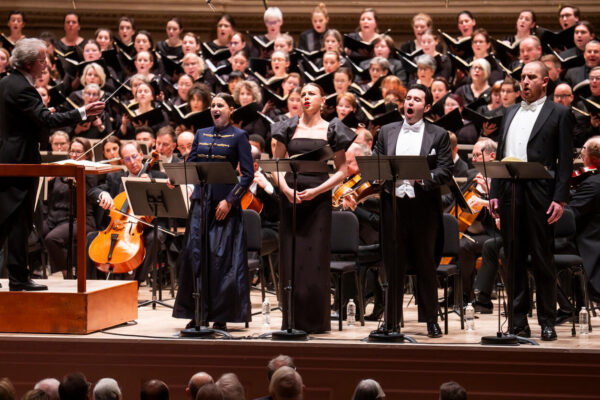
An excellent Věc Makropulos at Opéra de Lille makes the case for the vitality and necessity of France’s regional companies.
San Diego Opera presents a strongly directed and cast revival of Il barbiere di Siviglia.
In Modena, Teodor Currentzis‘s Ring ohne Worte foregoes words but not gimmickry.
Marina Rebeka comes tantalizingly close to triumph in Cherubini’s Médée at Théâtre des Champs Elysées.
Under the baton of Nicholas McGegan, Philharmonia Baroque Orchestra & Chorale proves they have a magic touch in a program of Rameau and Handel.
Austin Opera’s moving production of Fiddler on the Roof grounds itself in lived tradition, to great effect.
Davóne Tines leads a thought-provoking program in San Francisco reconsidering patriotism, dissent, and spirituality as the United States faces down its quarter millennium crisis.
La Monnaie’s flamboyantly busy new production of Benvenuto Cellini reads more burlesque than Berlioz.
Die Entführung aus dem Serail boldly goes where no opera has gone before at Pacific Opera Project.
Iván Fischer‘s Mahler 3 with the Budapest Festival Orchestra at Carnegie Hall is memorable but crude, sometimes exhilarating and often tedious.
A chic production of Violanta at the Deutshce Oper Berlin continues the Korngold craze on the other side of the Atlantic.
Das Wunder der Heliane fuses sex with the sacred at a simmering performance at the Opéra National du Rhin.
The vivacious MANON! at Heartbeat Opera makes a strong case for the return of opera in translation.
Simon Boccanegra has never felt as foreboding or prophetic as it did at a recent performance at La Fenice.
A stark, sweltering performance of Lady Macbeth of Mtsensk shocks the Komische Oper Berlin.
With Siegfried, the directorial vision of the Paris Opera‘s Ring cycle finally takes root.
Ponchielli goes east with mixed results in I Lituani.
Old pros Gregory Kunde and Pier Luigi Pizzi anchor a new staging of Stiffelio co-produced by three theaters in Emilia-Romagna.
Salome sweeps in like a storm at the Lyric Opera of Chicago.
Franz Welser-Möst leads a rigorous, if emotionally staid, performance of Verdi‘s Requiem at Carnegie Hall.
A Strauss rarity receives a ravishing concert performance at Seattle Opera.
Lise Davidsen‘s first Isolde is only one of the highlights of Tristan und Isolde at the Liceu in Barcelona.
A classic German fairytale gets a modern update at the Staatsoper Berlin.
The 20th anniversary revival of Richard Foreman and Michael Gordon‘s What to Wear at the PROTOTYPE Festival showcases a fabulous ensemble.
Tell us: What was the best of 2025?
Parterre Box concludes the thrilling first year of Talk of the Town by inviting your lightning rod opinions on several more categories of operatic argumentation.
Parterre Box concludes the thrilling first year of Talk of the Town by inviting your lightning rod opinions on several more categories of operatic argumentation.
Get our free newsletter
Opera's top reads delivered to your email weekly…ish.
Join over 100k readers.
The best opera magazine on the web.
Reviews, breaking news, critical essays, and brainrot commentary on opera from those demented enough to love it.
Essentials
Copyright © 2026 Parterre Box.
All rights reserved.
Registration or use of this site constitutes acceptance of our Terms & Conditions and our Privacy Policy.


























